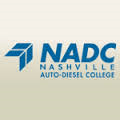What do they do?
Set up, operate, or tend spraying or rolling machines to coat or paint any of a wide variety of products, including glassware, cloth, ceramics, metal, plastic, paper, or wood, with lacquer, silver, copper, rubber, varnish, glaze, enamel, oil, or rust-proofing materials. Includes painters of transportation vehicles such as painters in auto body repair facilities.
Also known as:
Auto Body Painter (Automotive Body Painter), Auto Refinisher (Automobile Refinisher), Automotive Painter (Auto Painter), Automotive Refinish Technician (Auto Refinish Tech), Car Finish Man, Coater Operator, Hand Sprayer, Industrial Painter, Machine Operator, Paint Line Operator, Paint Operator, Paint Technician (Paint Tech), Painter, Powder Coater, Silk Screen Operator, Spray Painter, Top Coater, Vehicle Painter
-
1.3%
Change
Ranks #40 in job growth rate760Job Openings
Ranks #5 in net job growth
Colleges with the most graduates that become Coating, Painting, and Spraying Machine Setters, Operators, and Tenders
Looking for colleges that offer a specific major? Use the College Match Tool to find your best-matched schools and discover your estimated Net Price!
- High school diploma equivalent (47%)
- Less than high school diploma (22%)
- Some college, no degree (20%)
- Associate's degree (6%)
- Bachelor's degree (4%)
- Master's degree (<1%)
- Doctorate or Professional Degree (<1%)
People in this career often have talent in:
- Near Vision - The ability to see details at close range (within a few feet of the observer).
- Arm-Hand Steadiness - The ability to keep your hand and arm steady while moving your arm or while holding your arm and hand in one position.
- Control Precision - The ability to quickly and repeatedly adjust the controls of a machine or a vehicle to exact positions.
- Visual Color Discrimination - The ability to match or detect differences between colors, including shades of color and brightness.
- Manual Dexterity - The ability to quickly move your hand, your hand together with your arm, or your two hands to grasp, manipulate, or assemble objects.
People in this career often do these activities:
- Dispose of trash or waste materials.
- Mount attachments or tools onto production equipment.
- Apply protective or decorative finishes to workpieces or products.
- Monitor equipment operation to ensure that products are not flawed.
- Operate painting or coating equipment.
- Clean production equipment.
- Disassemble equipment for maintenance or repair.
- Load materials into production equipment.
- Clean work areas.
- Feed materials or products into or through equipment.
- Measure ingredients or substances to be used in production processes.
- Remove products or workpieces from production equipment.
- Inspect finishes of workpieces or finished products.
- Adjust equipment controls to regulate flow of production materials or products.
- Connect supply lines to production equipment or tools.
- Adjust temperature controls of ovens or other heating equipment.
- Record operational or production data.
- Operate cranes, hoists, or other moving or lifting equipment.
- Monitor equipment operation to ensure proper functioning.
- Attach decorative or functional accessories to products.
- Assemble temporary equipment or structures.
- Weigh finished products.
- Measure dimensions of completed products or workpieces to verify conformance to specifications.
- Polish materials, workpieces, or finished products.
This page includes data from:

 Occupation statistics: USDOL U.S. Bureau of Labor Statistics Occupational Employment Statistics
Occupation statistics: USDOL U.S. Bureau of Labor Statistics Occupational Employment Statistics













